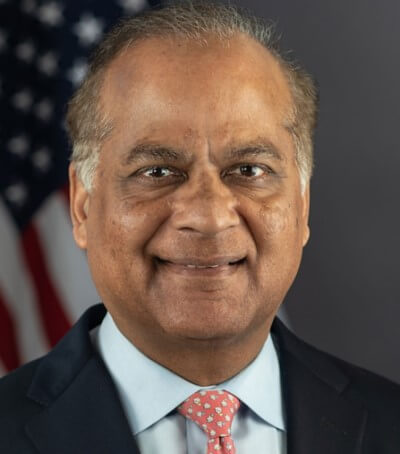Nearly 10 years since the U.S. Securities and Exchange Commission created its Division of Economic and Risk Analysis - on an organizational par with other divisions including Corporation Finance and Enforcement - DERA has its fifth director in S.P. Kothari.
That doesn't mean continuity is an issue. Personalities may change, but the leadership pattern is established, along with a think-tank-like mission to support through research and analytics the SEC's core policy, rule-making and supervisory functions.
A Massachusetts Institute of Technology professor who was until recently deputy dean of the Sloan School of Management, Kothari follows in the footsteps of other well credentialed academics. Most recently, Jeffrey Harris of American University held the post - which comes with the title of chief economist - in 2017‐'18.
Kothari, whose appointment was announced in February (see SEC Fills Key Risk Positions), believes that effective regulation is conducive to business prosperity, which in turn is “a form of investor protection. You can't have regulation that is stifling to business. A rising tide lifts all boats,” he said in an interview.
He stressed the importance of risk assessment by national regulatory agencies like the SEC, reflecting why DERA was established and elevated in the wake of the global financial crisis.
Student-Debt Risk
What worries him these days?

Kothari, who is the Gordon Y Billard Professor of Accounting and Finance at the MIT Sloan School and in 2008-'09 was global head of equity research for Barclays Global Investors, says that the historical problem of too-easy credit for mortgages threatens to recur in student lending. The former caused a distortion in demand for homes, and cheap money may similarly fuel an education bubble.
“Watch out for well‐intentioned lending or investing policies that don't pass the smell test, that are too good to be true,” he said.
With technology, and particularly the fintech innovation trend, on the minds of industry executives and regulators alike, Kothari sees investor protection and harnessing the power of technology as twin objectives.
Fintech can potentially result in more services at lower costs to consumers. A role for DERA is to identify how regulation can instill confidence among users of the new offerings.
Pluses of AI
The DERA director characterizes fears of job losses from artificial intelligence and machine learning as “overblown. Clearly there has been a trend towards automation, which has led to productivity increases, which has led to new jobs and services.”
He adds that AI is tending to reallocate workers from manufacturing to technology jobs in the western economies.
Kothari outlined four jobs that DERA carries out for the SEC: economic analysis for rule‐making; economic analysis to support litigation; managing data to be more user‐friendly and harmonized; and assisting with risk assessment.
The first three consume DERA staff resources in roughly equal measure, and the fourth is collaborative with other parts of the SEC.